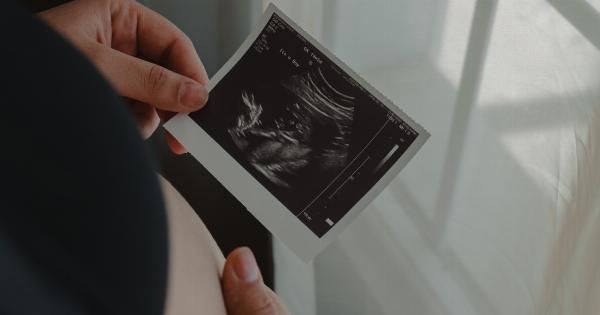Pregnancy is an incredible journey that brings joy and excitement to many expectant parents. However, it is essential to be aware of the potential risks and complications that can arise during this period.
The health of the unborn baby is of utmost importance, and understanding these risks can help expectant parents make informed decisions and take necessary precautions to ensure a healthy pregnancy and delivery. In this article, we will discuss some of the common risks that can affect the unborn baby during pregnancy.
1. Genetic and Chromosomal Abnormalities
Genetic and chromosomal abnormalities can have significant consequences for the unborn baby’s development.
Conditions like Down syndrome, cystic fibrosis, and sickle cell anemia are examples of genetic disorders that can be detected through prenatal screening tests. These tests help identify any potential abnormalities early on, allowing parents and healthcare providers to develop an appropriate management plan.
2. Maternal Health Conditions
The health of the mother plays a crucial role in the development and well-being of the unborn baby. Certain maternal health conditions can pose risks to the baby’s health.
For example, uncontrolled diabetes during pregnancy can increase the risk of birth defects, preterm birth, and other complications. Similarly, high blood pressure, thyroid disorders, and infections like Rubella or HIV can also affect the baby’s development.
3. Poor Nutrition and Unhealthy Lifestyle Choices
An inadequate or imbalanced diet during pregnancy can negatively impact the baby’s growth and development. Lack of essential nutrients, such as folic acid, iron, and calcium, can lead to neural tube defects, anemia, and weak bones in the baby.
Additionally, smoking, drinking alcohol, and using drugs can increase the risk of miscarriage, preterm birth, low birth weight, and developmental problems.
4. Maternal Age
Both young and advanced maternal age can increase the risk of certain complications. Teenage mothers are more likely to experience preterm labor, low birth weight, and neonatal mortality.
On the other hand, women over the age of 35 have a higher chance of chromosomal abnormalities, such as Down syndrome, as well as gestational diabetes and high blood pressure.
5. Infections
During pregnancy, certain infections can pose a risk to the unborn baby. Rubella, also known as German measles, can cause severe birth defects if contracted during the early stages of pregnancy.
Other infections, such as toxoplasmosis, listeria, and cytomegalovirus (CMV), can also lead to miscarriage, stillbirth, or long-term health issues in the baby.
6. Environmental Factors
Exposure to certain environmental factors can harm the developing baby. For example, prolonged exposure to high levels of radiation, chemicals, or pollutants may increase the risk of birth defects or developmental delays.
It is crucial for expectant parents to be mindful of their surroundings and take necessary precautions to minimize these risks.
7. Multiple Pregnancies
Carrying multiple babies, such as twins or triplets, can present additional risks compared to a single pregnancy. Multiple pregnancies often result in preterm birth and low birth weight, which can lead to a range of complications for the newborn.
Regular prenatal care and monitoring are essential for the well-being of both the mother and the babies.
8. Preterm Labor
Preterm labor refers to the onset of labor before the 37th week of pregnancy. Premature babies may face a higher risk of respiratory problems, infections, and developmental delays as their organs may not be fully developed.
Identifying the signs and symptoms of preterm labor and seeking immediate medical attention is crucial for the management and prevention of potential complications.
9. Placental Abnormalities
The placenta plays a vital role in providing oxygen and nutrients to the fetus throughout pregnancy. Any abnormalities in placental function can have serious consequences for the unborn baby.
Conditions such as placental previa, placental abruption, or intrauterine growth restriction can lead to complications like fetal distress, preterm birth, or stillbirth.
10. Maternal Stress and Mental Health
High levels of stress, anxiety, and untreated mental health conditions can potentially affect the unborn baby’s well-being.
Studies have shown an association between maternal stress and adverse outcomes, including preterm birth, low birth weight, and developmental issues. Therefore, seeking support, practicing relaxation techniques, and prioritizing mental well-being during pregnancy are essential.































